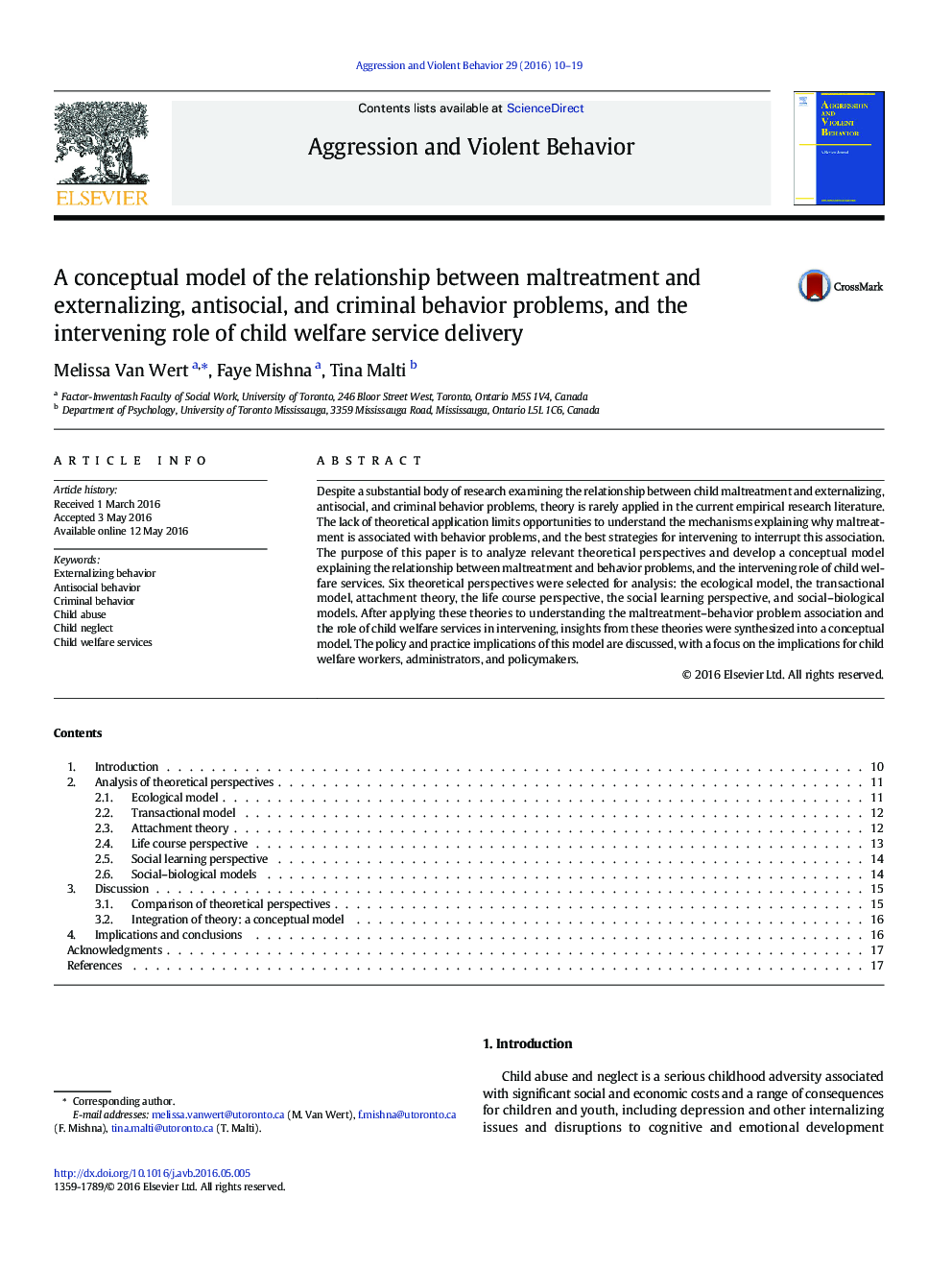| Article ID | Journal | Published Year | Pages | File Type |
|---|---|---|---|---|
| 94430 | Aggression and Violent Behavior | 2016 | 10 Pages |
•Theory is rarely applied in research connecting maltreatment to behavior problems.•Six theoretical perspectives were analyzed and integrated into a conceptual model.•The model explains the relationship between maltreatment and behavior problems.•The model also explores a role for child welfare services in intervening.
Despite a substantial body of research examining the relationship between child maltreatment and externalizing, antisocial, and criminal behavior problems, theory is rarely applied in the current empirical research literature. The lack of theoretical application limits opportunities to understand the mechanisms explaining why maltreatment is associated with behavior problems, and the best strategies for intervening to interrupt this association. The purpose of this paper is to analyze relevant theoretical perspectives and develop a conceptual model explaining the relationship between maltreatment and behavior problems, and the intervening role of child welfare services. Six theoretical perspectives were selected for analysis: the ecological model, the transactional model, attachment theory, the life course perspective, the social learning perspective, and social–biological models. After applying these theories to understanding the maltreatment–behavior problem association and the role of child welfare services in intervening, insights from these theories were synthesized into a conceptual model. The policy and practice implications of this model are discussed, with a focus on the implications for child welfare workers, administrators, and policymakers.
